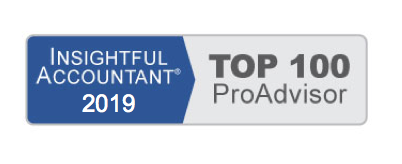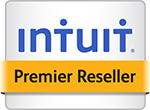-
QuickBooks Training Products
Category Archives: QuickBooks 2013 in Depth
How to Clear Up the Undeposited Funds Account in QuickBooks
For Accounting Professionals, have you ever worked with a client’s data file that had an incorrect undeposited funds balance? Did your client create a separate deposit transaction without assigning the receive payment to the deposit? The undeposited funds account is … Continue reading
Reviewing the AR Aging Summary Report in QuickBooks
You should always check the AR Aging Summary Report before fixing transactions. An individual transaction can be deceiving if you don’t see its relationship with other related transactions. When you select the Review AR Aging Summary Report link, QuickBooks opens … Continue reading
How to Write Off Invoices in QuickBooks
Often, as accounting professionals, we need to adjust our client’s Accounts Receivable balances. Perhaps there were several small unpaid finance charge invoices, or over the year our client’s customers paid their invoices short of what was due. Creating a customer … Continue reading
How to Fix Unapplied Vendor Payments and Credits in QuickBooks
For both Business Owners and Accounting Professionals, a complete review of Accounts Payable, including the proper process to use in QuickBooks, which potentially avoids the corrections detailed below, can be found in Chapters 7 and 8 of Laura Madeira’s QuickBooks … Continue reading
How to Customize the Company Snapshot in QuickBooks
One of the reasons QuickBooks is so popular is the ease in which you can get reports of your financial activity. On summary reports you can “drill down” on a specific number in a report to see the underlying transactions; … Continue reading
Changing the Online Banking Mode in QuickBooks
QuickBooks makes it easy to send or receive financial information among your bank or credit card financial institutions. The interface enables you to download your transactions for easy matching and reconciliation, examine recent bank transactions, transfer money between two online … Continue reading
How to Print Checks in QuickBooks
With QuickBooks, you can print checks individually, or in a batch of checks all at one time, as shown here: To print a check, or a group of checks, follow these steps: If the Write Checks transaction isn’t already open, … Continue reading
How to Add or Edit Payroll Items in QuickBooks
QuickBooks uses payroll items to calculate and track compensation, additions, deductions, and company expenses that result from paying employees. You need to set up your payroll items only once, which in turn makes processing payroll as easy as reporting the … Continue reading
Recording a Statement Charge in QuickBooks
Statement charges are useful if you want to accumulate charges before requesting payment, or if you assess a regular monthly charge to your customer. Use statement charges when you are not going to be providing the customer with an invoice, … Continue reading
How to Record Customer Payments in QuickBooks
When a businesses issues invoices, or statement charges, and expects the customer to remit payment within an agreed-upon number of days you will use the Receive Payment transaction in QuickBooks. When a customer payment is posted to your bank account, … Continue reading












